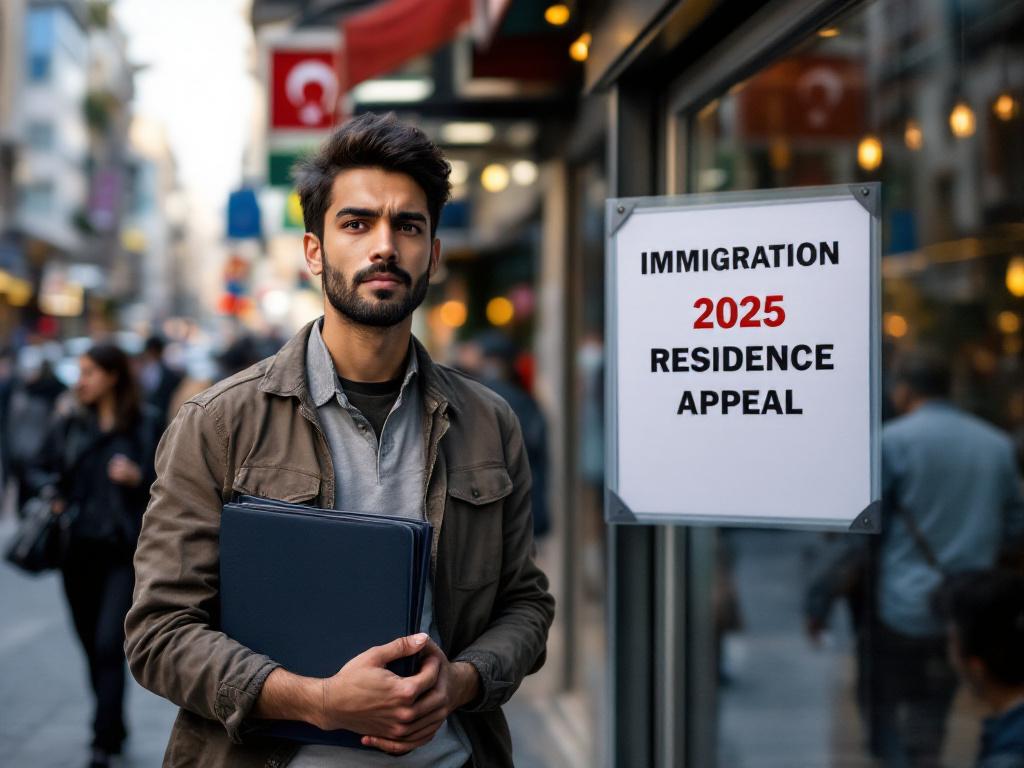- Introduction
In Turkey, residence permits are essential for foreign nationals wishing to reside legally within the country. These permits are governed by the Law on Foreigners and International Protection (Law No. 6458). However, applications for residence permits can be denied for various reasons, necessitating a clear understanding of the appeal process. This article provides a comprehensive guide to appealing a residence permit rejection in Turkey, reflecting the legal framework as of 2025.
- Common Reasons for Residence Permit Rejection
Understanding the typical grounds for rejection can aid applicants in preparing more robust applications or formulating effective appeals. Common reasons include:
• Incomplete or Incorrect Documentation: Submitting missing or inaccurate documents can lead to rejection.
• Misrepresentation: Providing false information or fraudulent documents is a serious offense resulting in denial.
• Threat to Public Order or Security: Applicants deemed a risk to public order or national security may be denied.
• Non-Compliance with Visa or Permit Conditions: Using a visa or permit contrary to its intended purpose can result in rejection.
• Insufficient Financial Means or Inadequate Accommodation: Lack of proof of financial stability or suitable living conditions can be grounds for denial.
- Notification of Rejection and Obligations
Upon rejection, the decision is officially communicated to the applicant. From the date of notification, the applicant is generally required to leave Turkey within 10 days. Failure to comply may lead to administrative fines and potential deportation. 
- Administrative Appeal Process
Applicants have the right to challenge the rejection through an administrative appeal. The steps include:
4.1. Filing an Appeal
• Timeframe: The appeal must be lodged within 30 days from the date of notification.
• Submission: The appeal should be directed to the authority that issued the rejection, typically the Provincial Directorate of Migration Management.
4.2. Appeal Content
• Petition: A well-structured petition addressing the reasons for rejection, providing counterarguments, and including any additional supporting documents.
• Supplementary Evidence: Any new or previously omitted documents that support the applicant’s case.
4.3. Evaluation and Outcome
• Review Process: The authorities reassess the application considering the appeal’s content.
• Decision: The outcome is communicated to the applicant, and if the appeal is successful, the residence permit is granted.
- Judicial Appeal Process
If the administrative appeal is unsuccessful or if the applicant chooses to bypass it, a judicial appeal can be pursued.
5.1. Filing a Lawsuit
• Timeframe: A lawsuit must be filed within 60 days from the date of notification of the rejection.
• Jurisdiction: The case should be filed in the Administrative Court of the region where the rejection was issued.
5.2. Legal Representation
While not mandatory, engaging a legal professional experienced in immigration law is advisable to navigate the complexities of the judicial process.
5.3. Court Proceedings and Decision
• Review: The court examines the legality of the rejection based on Turkish law and the specifics of the case.
• Outcome: The court may uphold the rejection or annul it, potentially resulting in the granting of the residence permit.
- Legal Stay During the Appeal Process
Filing an appeal does not automatically grant the right to remain in Turkey during the process. Applicants must apply for a visa for judicial purposes to legally stay in the country while awaiting the outcome. 
- Conclusion
Appealing a residence permit rejection in Turkey requires adherence to strict timelines and procedures. Understanding the reasons for rejection and following the appropriate appeal channels—administrative or judicial—is crucial. Given the legal intricacies, seeking professional legal assistance is highly recommended to enhance the chances of a successful appeal.
⸻
Note: This guide reflects the legal framework as of 2025. Applicants should consult official sources or legal professionals for the most current information.



